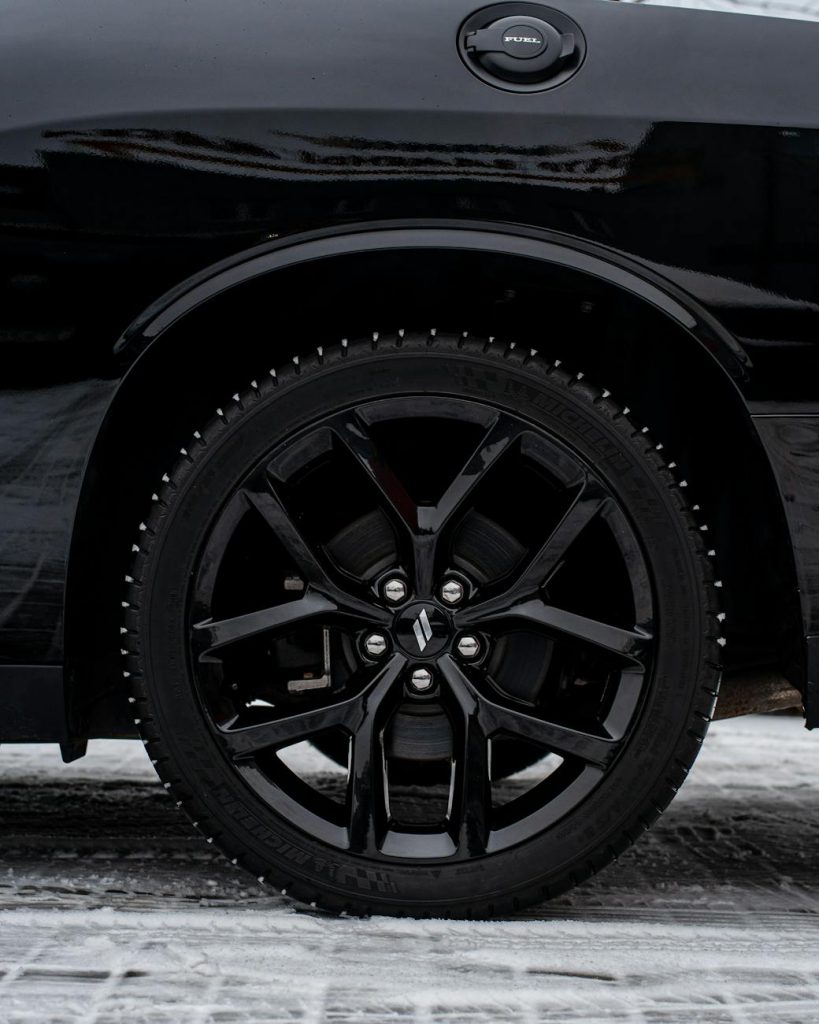Winter Rims Overview
Getting your car ready for winter? Picking the right rims is a big deal. You’ve got two main options: aluminum and steel. Each has its own perks and quirks.
Aluminum vs. Steel Rims
Aluminum rims are light and cool down fast. They look sleek and modern, but they don’t get along with road salt. Salt can mess them up, making them leak air (Logel’s Auto Parts).
Steel rims are the tough guys. They’re heavier, more durable, and cheaper. Plus, they’re easier to fix. Their flat design means less snow sticks to them (Logel’s Auto Parts).
Aluminum Rims
- Light as a feather
- Cool down quickly
- Look sharp
- Salt’s worst enemy
Steel Rims
- Built like a tank
- Last longer
- Easy to fix
- Wallet-friendly
- Snow doesn’t stick as much
Benefits and Drawbacks of Steel Rims
Steel rims shine in winter. They’re stronger and handle salt and grime better. You don’t have to balance them as often because of their weight.
But they do have downsides. They hold heat longer, which can wear out your brakes faster in the cold.
| Feature | Aluminum Rims | Steel Rims |
|---|---|---|
| Weight | Light | Heavy |
| Durability | Less | More |
| Repairability | Tough | Easy |
| Corrosion Resistance | Bad with salt | Good with salt |
| Heat Dissipation | Great | Not so great |
| Cost | Pricey | Cheap |
Want more info on picking the right rims? Check out our articles on winter rims deals, winter rims discounts, and winter rims selection.
Steel rims are a smart pick for winter, especially if you’re driving around places like Toronto, Niagara Falls, Kitchener, Hamilton, Surrey, Ottawa, and Calgary. For the best deals, visit our sections on winter rims for sale and affordable winter rims.
Choosing the Best Winter Tires
Picking the right winter tires is key for safe driving when it’s cold. Here’s a guide to help you out.
Top Winter Tire Recommendations
After lots of testing and reviews, here are the top winter tires:
| Tire Model | Performance Highlights | Rating |
|---|---|---|
| Michelin X-Ice Snow | Great in deep snow and slush | 89% |
| Nokian Hakkapeliitta R5 | Awesome on snow and ice, quieter ride | 93% |
| Continental VikingContact 7 | Quiet, great traction in snow | 87% |
| Pirelli Ice Zero FR | Handles well on dry roads | 89% |
| Yokohama iceGUARD iG53 | Reliable on icy roads | N/A |
For a detailed look at each tire, check out our winter rims reviews.
Tips for Optimal Winter Tire Performance
To get the most out of your winter tires, follow these tips:
- Regular Inspection: Check for wear and tear. Make sure the tread depth is good for snow.
- Proper Inflation: Keep the tire pressure right. Cold weather can make it drop.
- Rotation: Rotate your tires every 5,000 to 7,500 miles to keep them wearing evenly.
- Balancing and Alignment: Make sure your tires are balanced and aligned to avoid uneven wear and bad handling.
- Storage: Store your winter tires in a cool, dry place away from the sun when you’re not using them.
For more on keeping your winter rims and tires in top shape, see our articles on winter rims cleaning and winter rims care.
By following these tips, you’ll get the most life and performance out of your winter tires, making your winter drives safer. Check out our selection of winter rims for sale to complete your winter setup.


